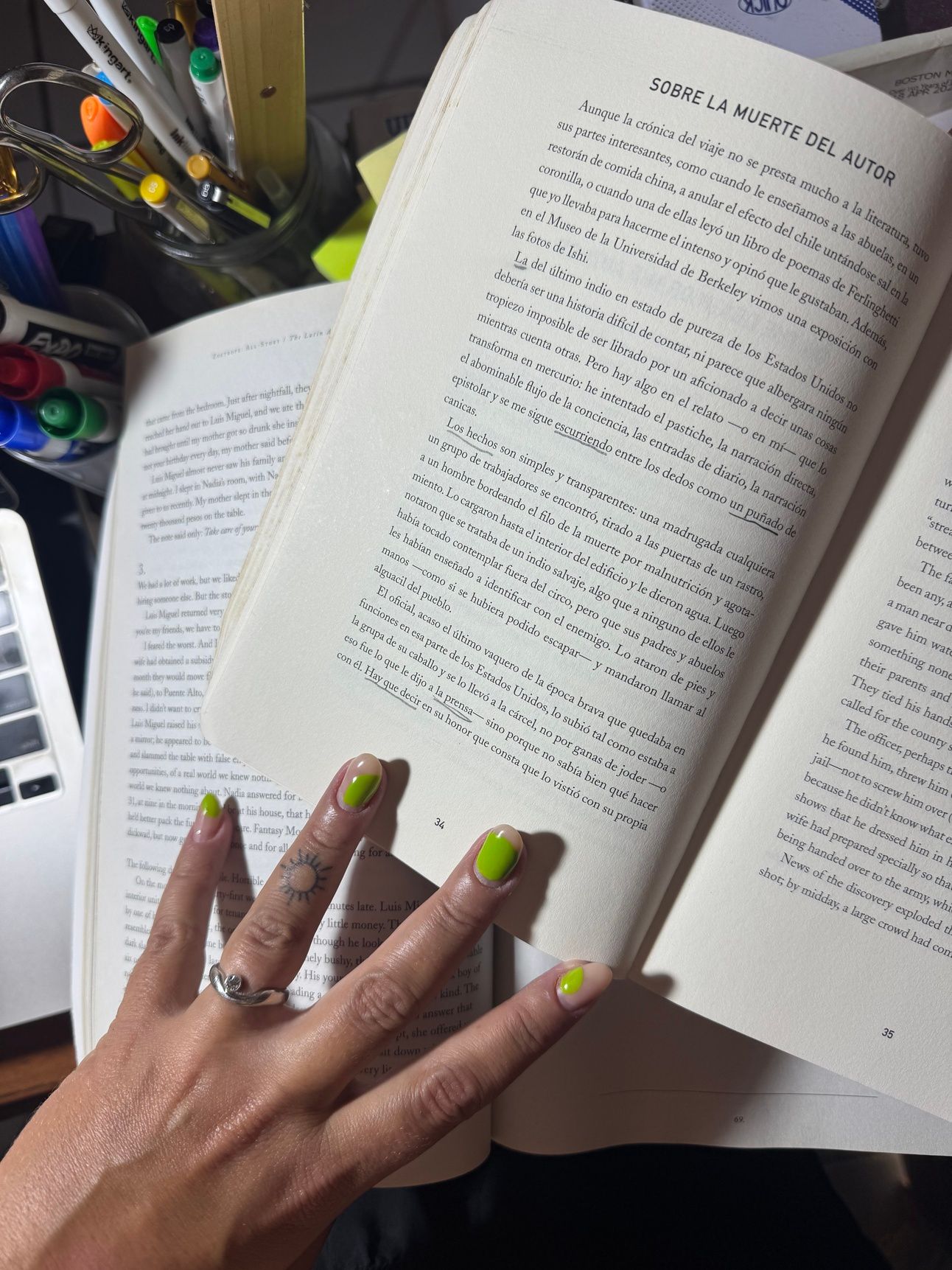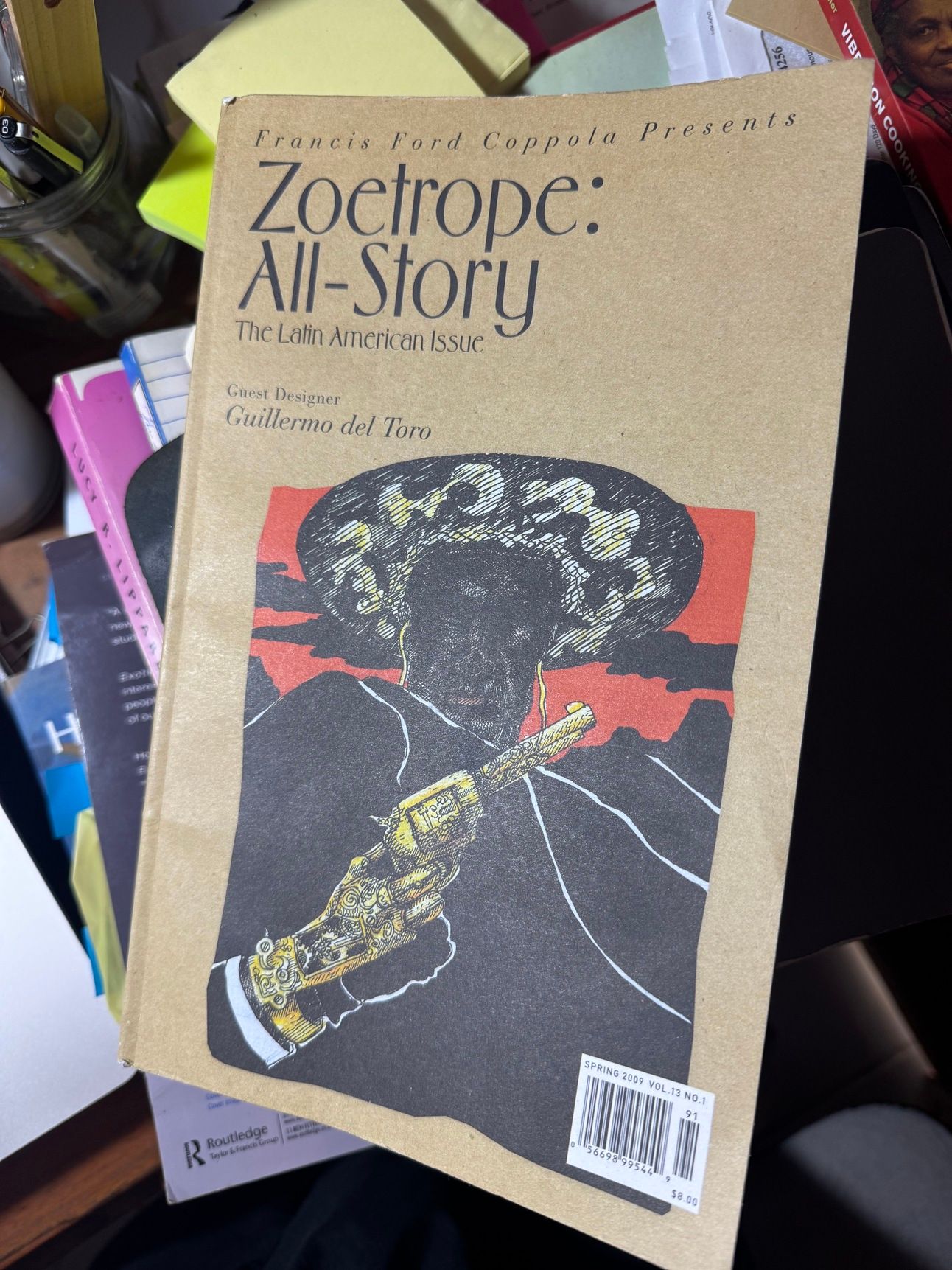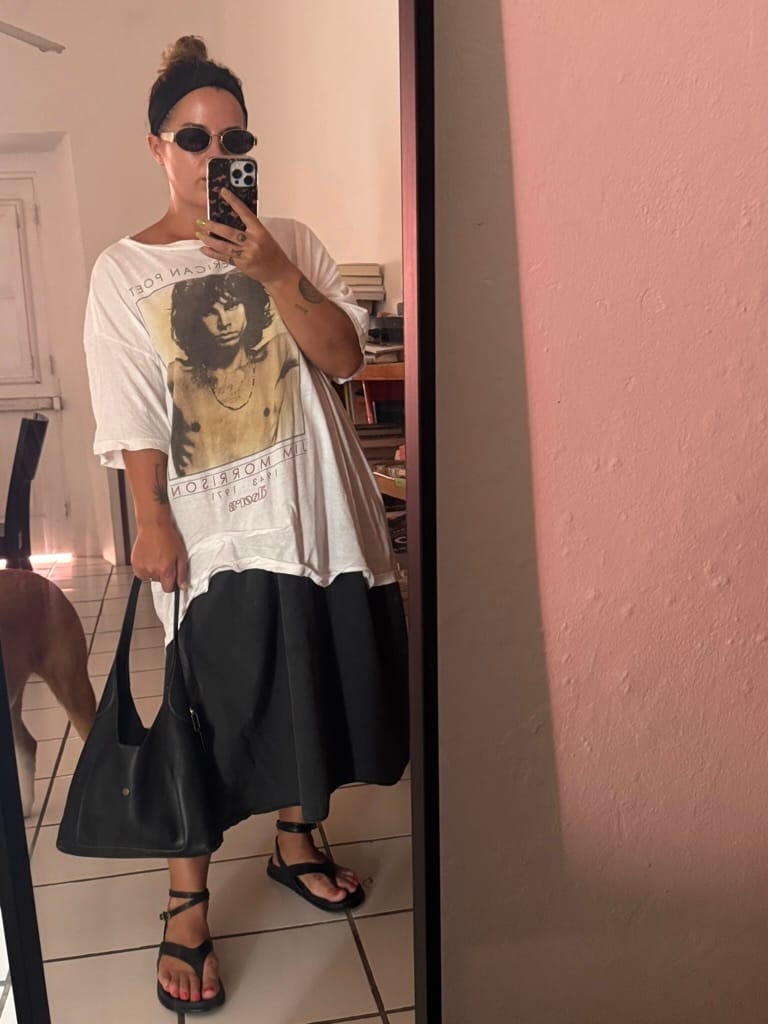
Become a member by upgrading your account for full access. Members can find links to events, discounts, and the TOMATO TOMATO Discord community here.
Writing my forthcoming memoir has made me conjure past selves. This has been painful but ultimately necessary. Annie Ernaux begins The Young Man with an epigraph of her own: “If I don’t write things down, they haven’t been carried through to completion, they have only been lived.” This has always been how I’ve thought I was working, but this book made me realize I was only touching the surface in order to get on to what I actually wanted to talk about. I’ve used myself in my work but I’ve not made myself the subject. This was what my editor and I talked about a lot while I was in the midst of the first draft, this need to become the subject.
How did I do that? With a lot of music (a five-hour playlist that will be revealed in time) and rereading. The significance of rereading is something I’ve touched on lightly before, but I’ve been thinking more about it because of how I designed my food essay class. We began with Virginia Woolf’s “The Modern Essay” and Carl H. Klaus’s piece about rereading Woolf’s essay over time, “On Virginia Woolf on the Essay.” (I’ve put PDFs of both after the paywall.) Then, each week, we would revisit essays that I had assigned in our early weeks to put them in fresh contexts and see how we also were responding in new ways after having more reading, writing, and discussion experience. I was trying to drill into the students how important rereading is to the process of writing, because you will not only understand the piece better, but yourself as well by noting changes in what you notice.
The world conspired to make me do some rereads of my own for the final draft of On Eating. A friend who was moving away returned my copy of The Best Contemporary Mexican Fiction to me, a book that includes “On the Death of the Author” by Álvaro Enrigue, my favorite short story of all time: I have a bit of it tattooed on my ribs, a late twenties decision I’ll explain more around my 40th birthday in November. The book still opens right to it; my little pencil underlines make me feel such tenderness toward my younger self.
This isn’t what I have tattooed, but I love it: “The stories I like, the ones that make me wildly jealous and yearn to be able to write that well, have the bedazzling logic of that old Basque: they lack a piece, and this lack transforms them into a myth, appealing to the lowest common denominator that makes us all more or less equal.”

Then, watching The Last Showgirl made me look up the Coppola family on Wikipedia, which reminded me of the literary magazine Zoetrope: All-Story and the Latin American issue it put out in spring 2009. I pored over that magazine and its stories like they were some sort of magic portal. I ordered a copy on eBay.
Both of these artifacts were published in bilingual fashion in the same year, and both I read in Spanish over and over when I was doing some classes in the NYU continuing studies school. (My friend Xiomara, a linguist, recently posted a video that I wish I’d seen then, about the importance of language confidence over fluency obsession—it would’ve changed my life, because I had and have no language confidence outside of my very good comprehension in reading and listening, but speaking has always been the source of my anxiety in English too.)

The Alicia of 2009 was 23 going on 24, dealing with her parents’ divorce, lost her job that she hated anyway because of the depression said divorce caused, and at the end of the year was miraculously hired as a copy editor at New York magazine. In hindsight, perhaps it was odd to become obsessed with my Spanish fluency with all of this going on, but it explains a lot about my tendency to avoid my inconvenient feelings (writing a memoir was an often painful crash course in de-repressing and learning that a lot of life simply gets lost).
This issue of Zoetrope was guest-designed by Guillermo del Toro and co-edited by Daniel Alarcón and Diego Trelles Paz, whose names were big at the time for anyone who was interested in Latin American fiction in translation. It opens up to a Marc Jacobs ad starring Ryan McGinley in a bathtub shot by Juergen Teller, which also places it in the amber of its era. (And maybe explains why I’ve loved Teller’s recent work for Ferragamo so much, ooh-ing and aah-ing at it shown on massive screens in the Milan airport earlier this year.)
In their editors’ letter, titled “The Post-Post Boom,” Alarcón and Trelles Paz write about the changes in the Latin American cultural and political landscapes that have necessitated a new push for translation beyond the popularity of Gabriel Garcia Marquez and magical realism now that Bolaño was having his big moment in the sun.
Going into it, the stories I remembered best were Aura Estrada’s “An Open Secret,” translated by her husband Francisco Goldman (Estrada passed away in 2007 in a swimming accident at the age of only 30, and Goldman’s book Say Her Name chronicles his grief) and Alejandro Zambra’s “Fantasy.” Estrada’s story takes place, like many stories do, at a literary congress, and has a lovely mischievous buoyancy and is refreshingly written in the third person—I miss third person narrators and am thrilled whenever I encounter one, which I don’t think I realized until revisiting this story.
Zambra was and remains one of my favorite writers. I’d read Bonsai when it came out in translation originally from Melville House in 2008 and I remain stunned by its brilliance and brevity. (His Chilean Poet is one of my favorite recent novels—third person. While I have you and am on the subject, I adored Aleksandar Hemon’s recent third person novel The World and All That It Holds, too, and I would’ve gotten into his work via The Lazarus Project around this time in my life, as well—all of which goes to explain why I started last week’s essay by mentioning my youthful obsession with writers from Latin America and Eastern Europe. Thank Bolaño and Dalkey Archive.)
Anyway, “Fantasy” is Zambra doing early Zambra perfectly: simple sentences and exquisite character construction, even in four or so pages.
I’m reminded now of “Insular Menu” by the Cuban writer Ronaldo Menéndez, which I would’ve surely been obsessed with at the time because of my love for Reinaldo Arenas and anything related to the Spanish-speaking Caribbean because I wanted to understand Puerto Rico. The fact of people eating an ostrich from the zoo I do recall, and its black humor, interesting structure, and topic (food) would’ve delighted and horrified me. “All that my eyes saw inside myself was simultaneous; what I will transcribe will be consecutive, because language is,” he writes, and these kinds of meta touches would’ve thrilled me.
In general, these rereads remind me of how hopeful I was at this time, but also how desperate: Desperate to travel, to learn a language with fluency, to create a world for myself outside of the pain in my immediate family. I call it “desperate,” but maybe I was “eager.” Maybe I was working, trying, studying to turn myself into someone I wanted to be. Maybe I was just in my early twenties. I’d go on to do copyediting work for many literary magazines and for Roxane Gay’s micropress, and I’d write secret short stories of my own until food took over my life. I had to greet this young woman with patience and acceptance, even if with hindsight, I’d rather shake her by the neck for her avoidance of reality; even if with hindsight, I’d like to forget that I had some different dreams, different lives. Without her, no me. Without all these stories of the post-post boom, no me.
I’d love to hear about the rereads that would transport you to the past. Let us know in the comments.
Workshops & More
Editorial consultations are on sale through Labor Day—$75 for members and $100 for everyone else. Essay editing is now available for pieces up to 3,000 words. The Newsletter Workshop and How to Create an Editorial Vision are available as downloads for anyone who’d like to take their publication more seriously.
The Desk Salon Series
The Salon Series will return in September. If you have requests for future guests, please let me know in comments, at the Discord, or via email.
The Desk Book Club

In September, we will start to read the classic Vibration Cooking: Or, the Travel Notes of a Geechee Girl by Vertamae Smart-Grosvenor. We will have our Zoom discussion in October—the date will be announced when we return to our normal programming.

Me recently in a fit I liked.
Below, the PDFs of referenced texts and the books I’ve been reading…
Become a Member
You'll get full access to every post, events, and the TOMATO TOMATO Discord community, as well as my recipe archive.
Join Us

